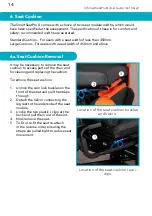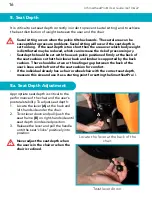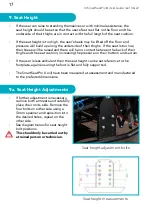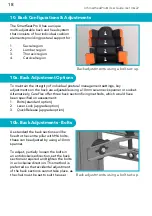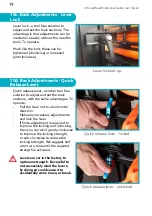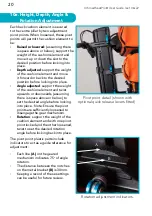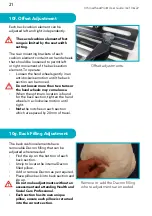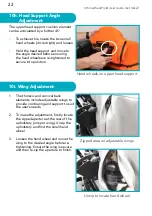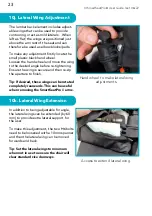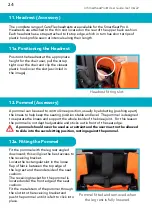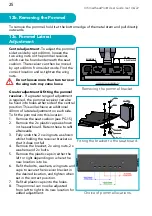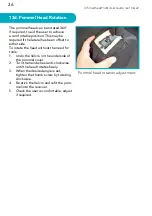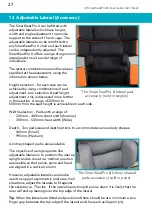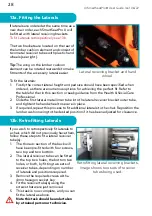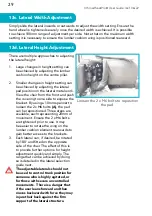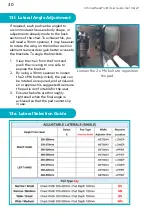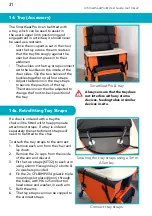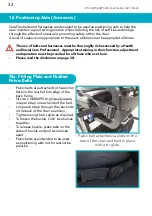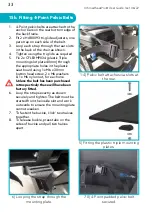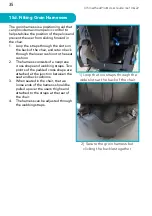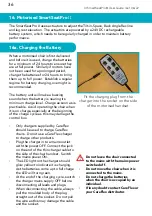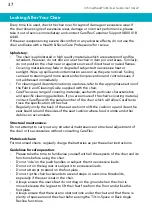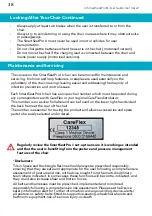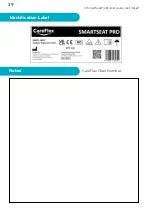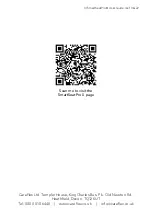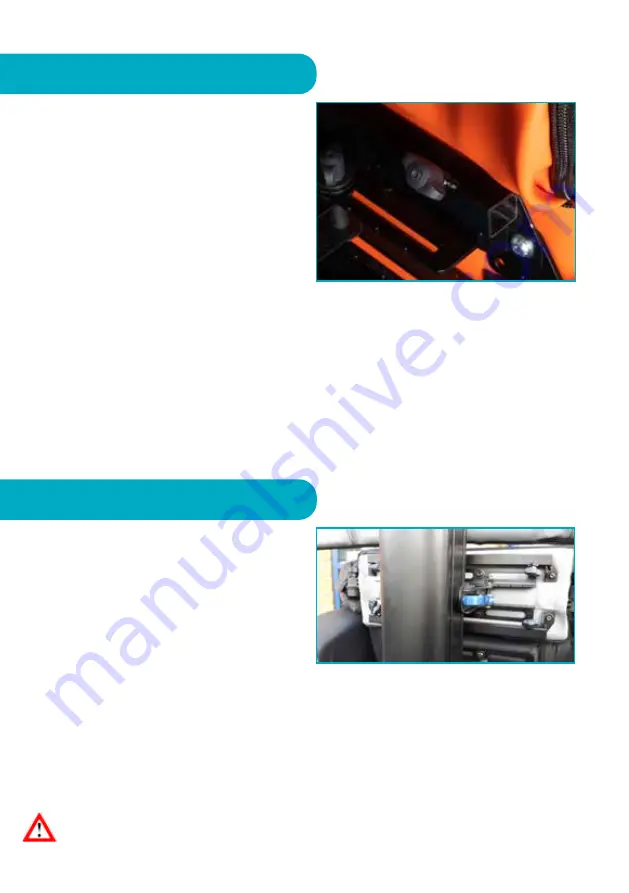
UI SmartSeatPro
II
User Guide. Iss1 06/22
28
If laterals are ordered at the same time as a
new chair order, each SmartSeatPro
II
will
be fitted with lateral receiving brackets.
To fit Laterals retrospectively see 13b.
The two brackets are located on the rear of
the lumbar cushion element and consist of
two metal receiver tubes with plastic hand
wheels (see right).
Tip: The wing on the lumbar cushion
element can be rotated rearwards to make
fitments of the accessory lateral easier.
To fit the laterals:
1. Firstly the correct lateral height and pad size should have been specified when
ordered, as there are numerous options for achieving the perfect fit. Refer to
the table further in this section or seek guidance from the Health & Social Care
Professional.
2. Slide the first lateral metal inner tube into the lateral receiver bracket outer tube,
and tighten the hand wheel to secure in place.
3. If required, repeat this process to fit additional laterals to the chair. Reposition the
lumbar cushion wing to the desired position if it has been adjusted for clearance.
13a. Fitting the Laterals
If you wish to retrospectively fit laterals to
a chair, which did not previously have them,
follow these steps to fit a lateral receiver
tube(s):
1. The thoracic section of the back will
have been pre-fitted with four screws,
two top and two bottom.
2. The lateral receiver tube can be fitted
to the top two holes, the bottom two
holes, or both, by fitting two sets of
receiver tubes, depending on number
of laterals and positions required.
3. Remove the required screws with a
4mm hexagon socket key.
4. Fit the receiver tube(s) using the
screws that were just removed.
5. This task is now complete, and you can
fit the lateral as above.
•
Note this task should be undertaken
by a trained person or technician.
Lateral receiving bracket and hand
wheel.
13b. Retrofitting Laterals
Retrofitting lateral receiving brackets,
image shows two sets of receiver
tubes being used.

